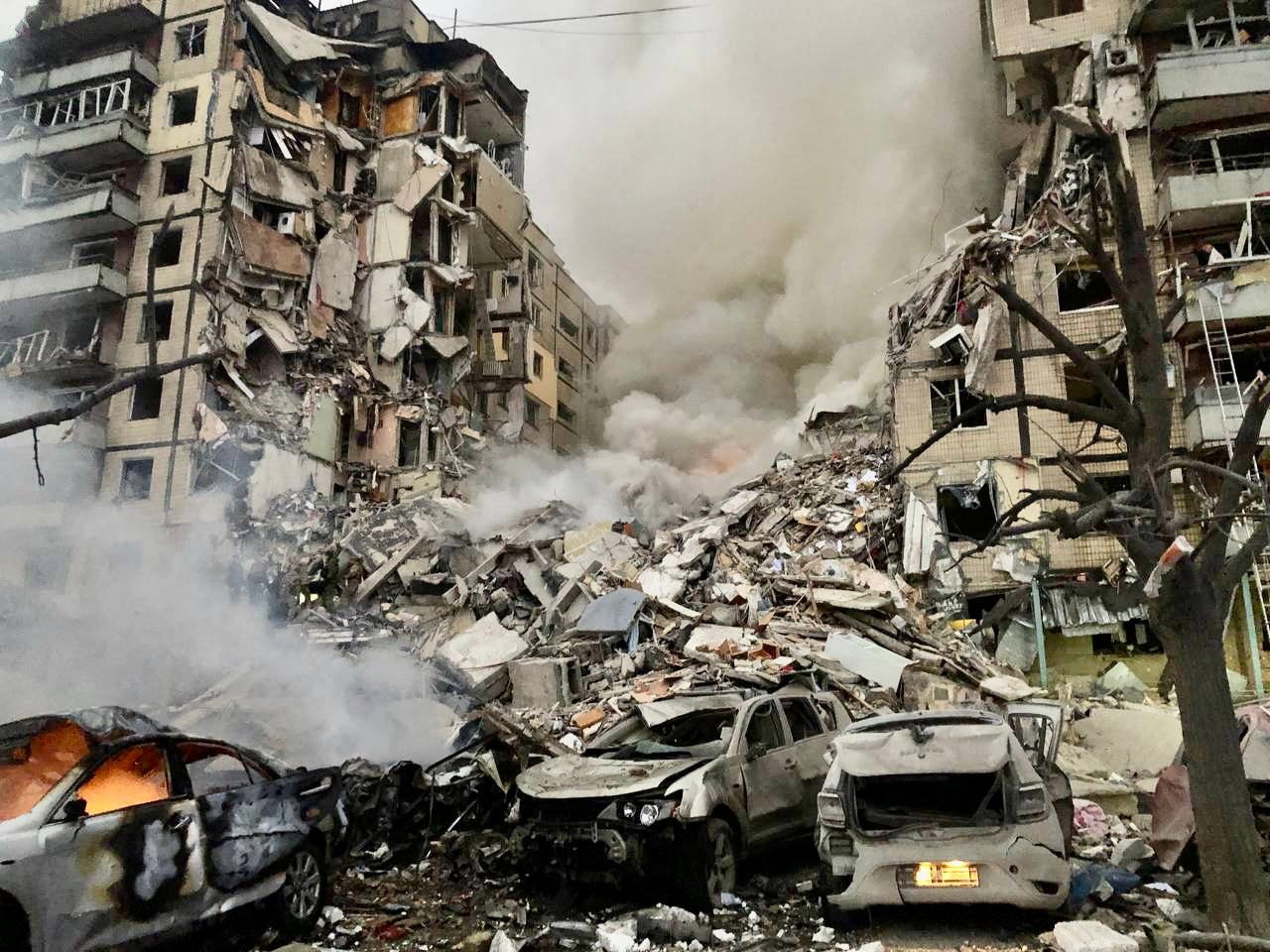#8 is not a heavy (400-500) kg warhead. We know what 500 kg warheads look like when somewhere got Kalibrated.

Note the walls at the back of the room that are unscathed. Typical length of a class/conference room is ~10 m.
#8 is not a heavy (400-500) kg warhead. We know what 500 kg warheads look like when somewhere got Kalibrated.

There are no reasons for having this conclusion, particularly when it seems that there is a high chance of a series of mutual attacks happening.Has Iran actually succeeded in establishing deterrence with this sort of attack?
The first time it did an orchestrated response was for the assassination of Soleimani.
The second time was in response to the bombing of its embassy in Syria, killing two of its generals.
The third time, this time, was in response to the assassination of the leaders of Hamas and Hezbollah.
From an outsider’s perspective, it doesn’t look like Iran’s actually deterring anything. Rather, it looks like it’s a show for domestic and regional consumption.
Maybe this time will be different, but we already have Israel swearing revenge, so I doubt it.
Has Iran actually succeeded in establishing deterrence with this sort of attack?
Former Prime Minister. He is in glee right nowMaybe this time will be different, but we already have Israel swearing revenge, so I doubt it.
There are no reasons for having this conclusion, particularly when it seems that there is a high chance of a series of mutual attacks happening.
Senior White House figures privately told Israel that the U.S. would support its decision to ramp up military pressure against Hezbollah — even as the Biden administration publicly urged the Israeli government in recent weeks to curtail its strikes, according to American and Israeli officials.
Presidential adviser Amos Hochstein and Brett McGurk, the White House coordinator for the Middle East, told top Israeli officials in recent weeks that the U.S. agreed with Israeli Prime Minister Benjamin Netanyahu’s broad strategy to shift Israel’s military focus to the north against Hezbollah in order to convince the group to engage in diplomatic talks to end the conflict, the officials told POLITICO.
Not everyone in the administration was on board with Israel’s shift, despite support inside the White House, the officials said. The decision to focus on Hezbollah sparked division within the U.S. government, drawing opposition from people inside the Pentagon, State Department and intelligence community who believed Israel’s move against the Iran-backed militia could drag American forces into yet another Middle East conflict.
POLITICO spoke to two Israeli and four U.S. officials for this story, most of whom were granted anonymity to speak freely about sensitive diplomatic talks.
“Both things can be true — the U.S. can want diplomacy and support Israel’s larger goals against Hezbollah,” a senior U.S. official said. “There’s clearly a line that the administration is toeing, it’s just not clear what that line is.”
Behind the scenes, Hochstein, McGurk and other top U.S. national security officials are describing Israel’s Lebanon operations as a history-defining moment — one that will reshape the Middle East for the better for years to come.
The thinking goes: Israel has obliterated Hezbollah’s top command structure in Lebanon, severely undercutting the group’s capabilities and weakened Iran, which used Hezbollah as a proxy and power projector.
Iran and US both want to deescalate, not Israel.I wouldn't be surprised if the Iranian, Israeli, and US governments had jointly discussed and greenlighted this operation through their backchannels prior to its execution.
